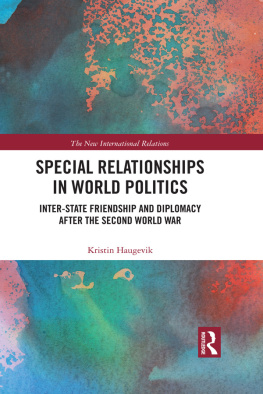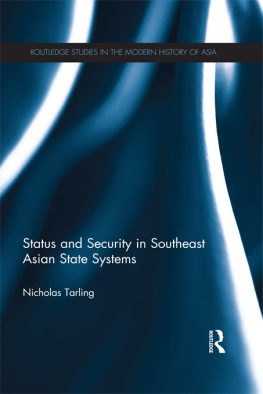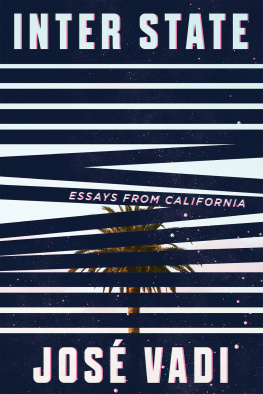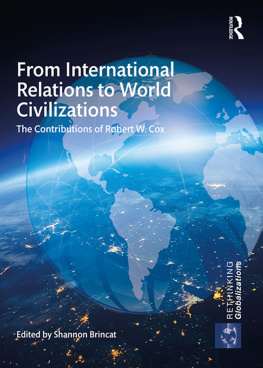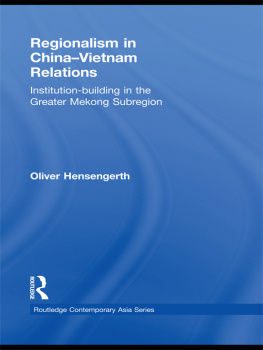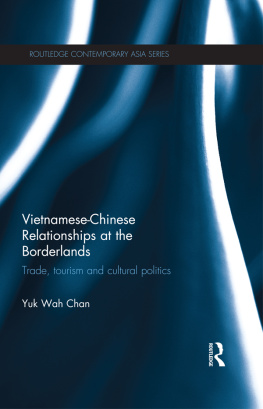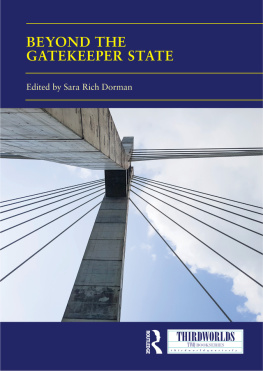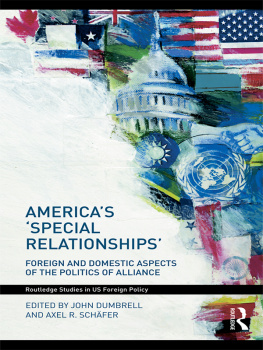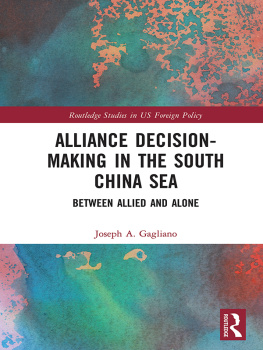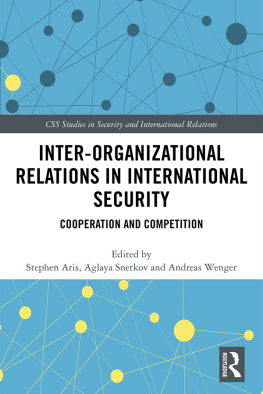Special Relationships in World Politics
Claims of inter-state specialness are commonplace in international politics. But how do some relationships between states come to be seen and categorized as special in the first place? And what impact, if any, do recurring public representations of specialness have on states political and diplomatic interaction?
While much scholarly work exists on alleged instances of special relationships, and on inter-state cooperation and alliances more generally, little systematic and theory informed research has been conducted on how special relationships evolve and unfold in practice. This book offers such a comprehensive study. Theorizing inter-state relations as ongoing social processes, it makes the case for approaching special relationships as constituted and upheld through linguistic representations and bilateral interaction practices. Haugevik explores this claim through an in-depth study of how the bilateral relationship most frequently referred to as special the US-British has unfolded over the last seventy years. This analysis is complemented with a study of Britains relationship with a more junior partner, Norway, during the same period.
The book offers an original take on inter-state relations and diplomacy during the Cold War and after, and develops an analytical framework for understanding why some state relationships maintain their status as special, while others end up as benignly neglected ones.
Kristin Haugevik is Senior Research Fellow at the Norwegian Institute of International Affairs (NUPI).
The New International Relations
Edited by Richard Little
University of Bristol
Iver B. Neumann
Norwegian Institute of International Affairs (NUPI), Norway
Jutta Weldes
University of Bristol
The field of international relations has changed dramatically in recent years. This new series will cover the major issues that have emerged and reflect the latest academic thinking in this particular dynamic area.
Great Power Multilateralism and the Prevention of War
Debating a 21st Century Concert of Powers
Edited by Harald Mller and Carsten Rauch
De-Constructing the Dynamics of World-Societal Order
The Power of Governmentality in Palestine
Jan Busse
Raymond Aron and International Relations
Edited by Olivier Schmitt
Coercive Sanctions and International Conflicts
A Sociological Theory
Mark Daniel Jaeger
Security, Defense Discourse and Identity in NATO and Europe
How France Changed Foreign Policy
Falk Ostermann
Special Relationships in World Politics
Inter-state Friendship and Diplomacy after the Second World War
Kristin Haugevik
Kinship in International Relations
Edited by Kristin Haugevik and Iver B. Neumann
For more information about this series, please visit: www.routledge.com/New-International-Relations/book-series/NEWIR
First published 2018
by Routledge
2 Park Square, Milton Park, Abingdon, Oxon OX14 4RN
and by Routledge
711 Third Avenue, New York, NY 10017
Routledge is an imprint of the Taylor & Francis Group, an informa business
2018 Kristin Haugevik
The right of Kristin Haugevik to be identified as author of this work has been asserted by her in accordance with sections 77 and 78 of the Copyright, Designs and Patents Act 1988.
All rights reserved. No part of this book may be reprinted or reproduced or utilised in any form or by any electronic, mechanical, or other means, now known or hereafter invented, including photocopying and recording, or in any information storage or retrieval system, without permission in writing from the publishers.
Trademark notice: Product or corporate names may be trademarks or registered trademarks, and are used only for identification and explanation without intent to infringe.
British Library Cataloguing-in-Publication Data
A catalogue record for this book is available from the British Library
Library of Congress Cataloging-in-Publication Data
A catalog record for this book has been requested
ISBN: 978-0-415-78639-3 (hbk)
ISBN: 978-1-315-22762-7 (ebk)
Typeset in Times New Roman
by Apex CoVantage, LLC
We hear it every day, in and out of international relations: talk is cheap. What states say and what states do are two different things, and the one does not necessarily have any bearing on the other. This book disagrees. Haugevik hypothesises that practices that is, socially recognized stuff that people do well or badly tend to reflect and reinforce discursive representations that is, linguistic suggestions for how practices ought to be. In lucid and logical fashion, she sets out how this process plays out regarding one specific phenomenon relationships between states that are said to be special but the argument has general applicability.
Haugevik begins by noting how a number of relations between state dyads have been referred to as special. As a category of practice, special relationships are well ensconced. Attempts at making special relationship into a scholarly tool for understanding how they work are also in evidence. Although these attempts have shown up interesting patterns as to when the epithet special sticks, with the most obvious one being that special relationships tend to grow out of former colonial ones, attempts at making special relationships into a category of analysis have failed. That is all right with Haugevik. Drawing particularly on work by David Lake and Adler and Barnett, she prefers instead to think of this particular type of relations between states as a question of how formalized interactions are. More specifically, she concentrates on how specialness is performed. In his 1956 classic The Presentation of Self in Everyday Life , sociologist Erving Goffman brought the theatrical pair of front stage/back stage to social analysis. Haugevik joins the ongoing Goffman revival in and out of IR by seeing practices such as bilateral visiting patterns, public statements of recognition and diplomatic resource allocation as front-stage ways of performing special relations. The point of these public or front-stage performances is to build trust and hence predictability when people of the state perform for one another back stage.
There follow four tight chapters of empirical research, where Haugevik traces the unfolding of a successful and an unsuccessful case. The successful one is, inevitably, the post-Second World War relationship between the United States and the United Kingdom. The unsuccessful one is the relationship between Haugeviks native Norway and its saviour from Nazi occupation during the Second World War, the United Kingdom. Haugevik traces how these two dyads of states have represented one another, first and foremost but not exclusively, in parliamentary debates. She then looks at interaction patterns on the international front stage over time, and ends by discussing back-stage practices for everyday contact and communication. One particularly revealing practice that definitely deserves to be called special is the one guaranteed by the so-called UKUSA agreement, by dint of which the diplomats of those two states have automatic access to one anothers Foreign Ministries on the strength of their native identi-fication papers only. Physical access is shadowed by social access, in the sense that diplomats from one of the two states have an immediate expectation of being granted time and access by colleagues from the other state.

